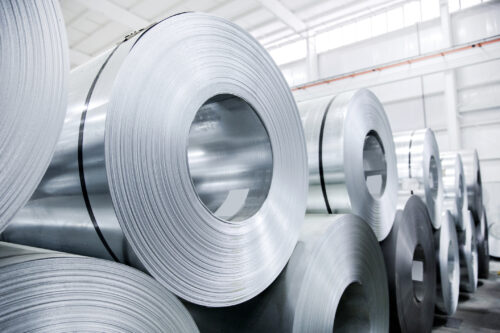Aluminum Sector
Accounting for Aluminum Emissions at the Product Level.

Slashing emissions in one of the world's highest-emitting industrial sectors
Aluminum is essential to the clean energy transition, and demand for aluminum is expected to increase by nearly 80 percent as the world builds out the infrastructure required to meet climate goals. If we don’t decarbonize this sector — currently responsible for roughly 3 % of global greenhouse gas emissions — we’re at risk of causing unintended climate damage in our race to build out solutions. RMI is working directly with aluminum producers, corporate buyers, and the financial institutions that will need to finance nearly $1 trillion in additional investment required to accelerate the sector’s decarbonization, toward the goal of reaching net-zero emissions by 2050.
Our work across the aluminum supply chain includes product-level carbon accounting guidance that allows suppliers to determine the emissions associated with aluminum manufacturing practices at specific facilities — while providing insights on where emissions can be cut to gain a competitive advantage. With buyers increasingly looking for verified sustainable products, those insights are also invaluable for identifying specific low or zero-emissions manufacturing technologies for traditionally carbon-intensive processes such as smelting.
Aluminum companies need to finance these low or zero-emissions technologies, and RMI has developed the Sustainable Aluminum Principles to help banks and aluminum producers collaborate on decarbonization projects. The voluntary framework enables banks to assess and disclose the alignment of their aluminum lending portfolios against a 1.5°C pathway and effectively support their clients’ decarbonization projects and facility upgrades. The Framework is the result of extensive consultations with banks, industry, experts, and civil society, ensuring their robustness and alignment with existing standards.
Accounting for Aluminum Emissions at the Product Level.
The aluminum industry is responsible for roughly 2 percent of global greenhouse gas (GHG) emissions.
How Emissions Transparency Can Advance Industry Decarbonization
Post-consumer recycling needs to increase significantly by 2050, better disclosures can speed up that process.
Light, strong, and highly recyclable, aluminum is essential to technologies that are driving the energy transition.
International Aluminum
Center for Climate-Aligned Finance
Guidance Document
Two-Pager
Report